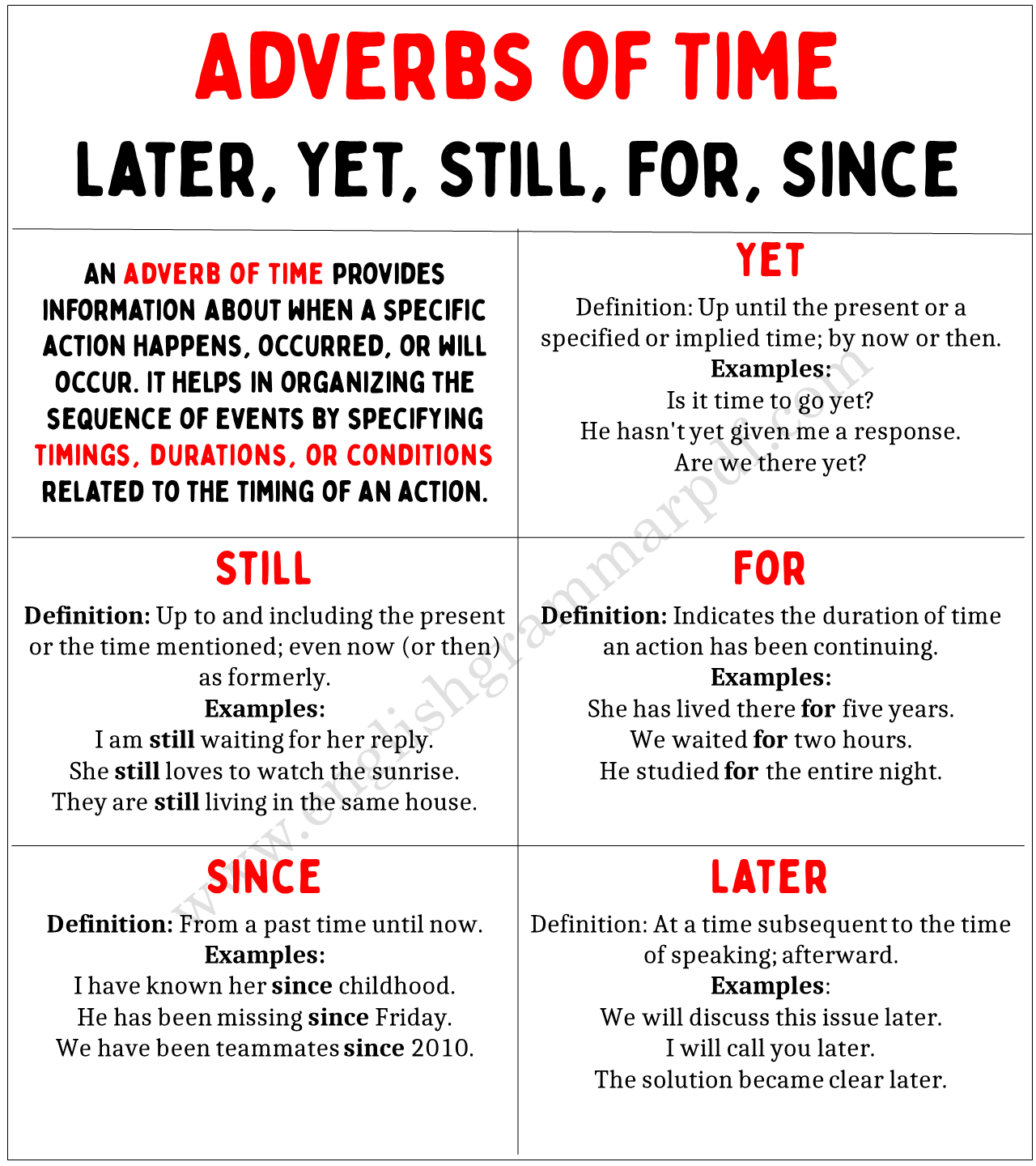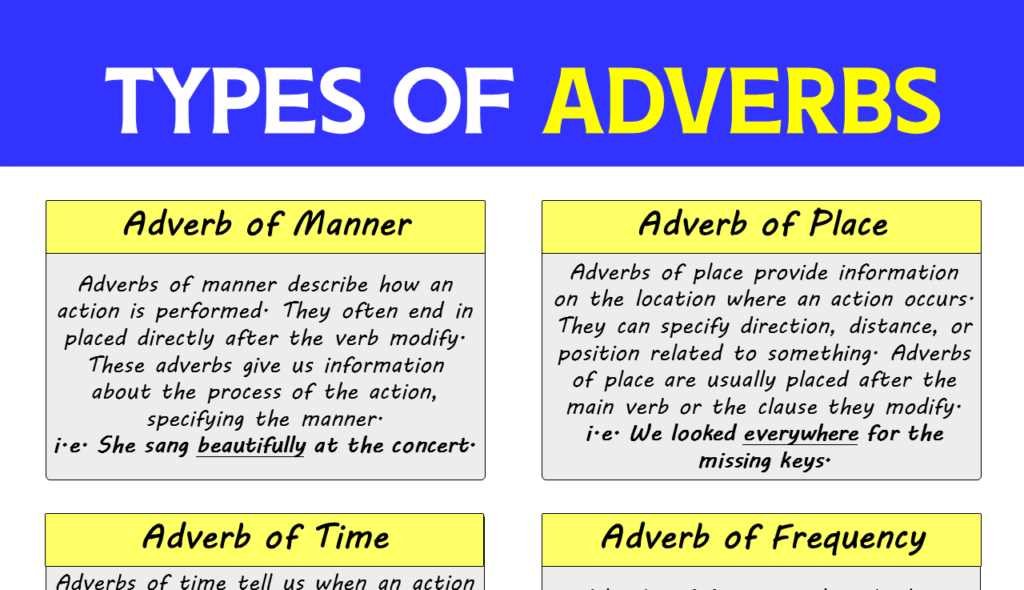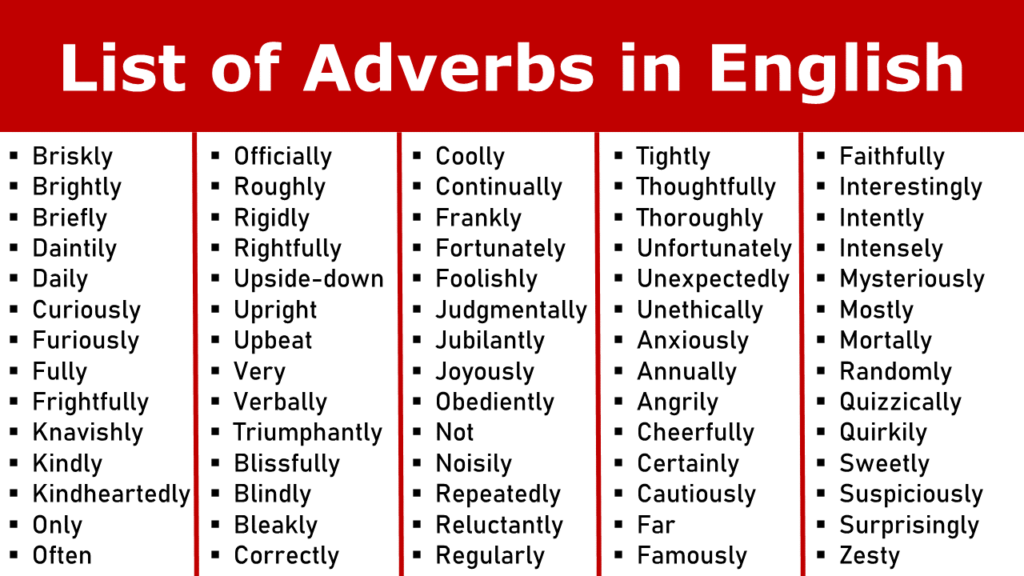Adverbs of time are essential components of English grammar, enhancing our understanding of when actions occur. This post explores the roles and uses of five common adverbs of time: later, yet, still, for, and since.
What is an Adverb of Time?
An adverb of time provides information about when a specific action happens, occurred, or will occur. It helps in organizing the sequence of events by specifying timings, durations, or conditions related to the timing of an action.
Definitions and Examples
Later
Definition: At a time subsequent to the time of speaking; afterward.
Examples:
- We will discuss this issue later.
- She arrived ten minutes later than planned.
- Later in the evening, we went out for dinner.
- I will call you later.
- The solution became clear later.
Yet
Definition: Up until the present or a specified or implied time; by now or then.
Examples:
- I haven’t completed my homework yet.
- Is it time to go yet?
- He hasn’t yet given me a response.
- Are we there yet?
- She has yet to confirm her arrival.
Still
Definition: Up to and including the present or the time mentioned; even now (or then) as formerly.
Examples:
- I am still waiting for her reply.
- He still doesn’t understand the rules of the game.
- She still loves to watch the sunrise.
- Are you still working on that project?
- They are still living in the same house.
For
Definition: Indicates the duration of time an action has been continuing.
Examples:
- She has lived there for five years.
- We waited for two hours.
- He studied for the entire night.
- I have worked here for a long time.
- They have been married for ten years.
Since
Definition: From a past time until now.
Examples:
- I have known her since childhood.
- He has been missing since Friday.
- We have been teammates since 2010.
- She has been silent since the meeting started.
- I haven’t eaten since yesterday morning.



